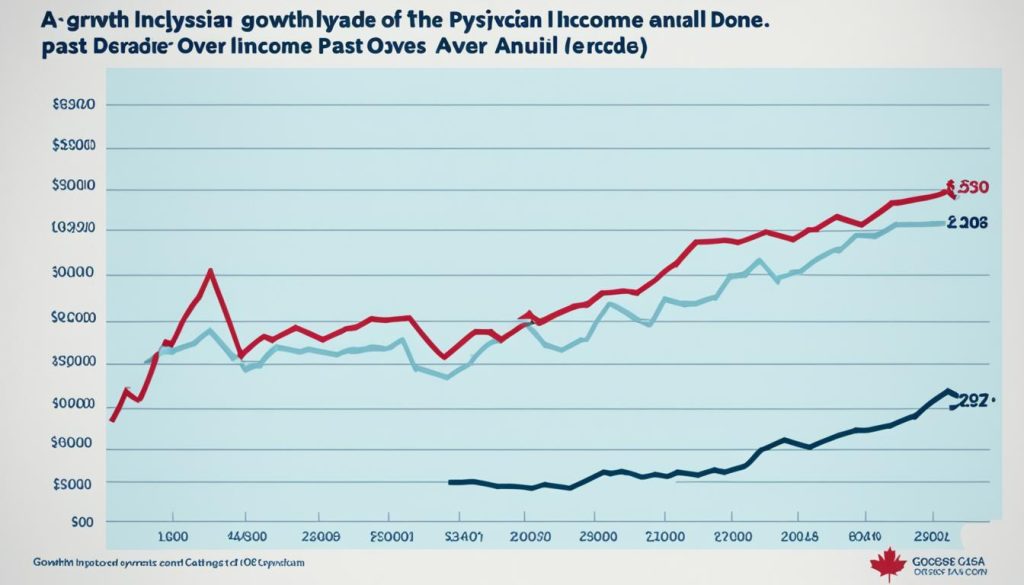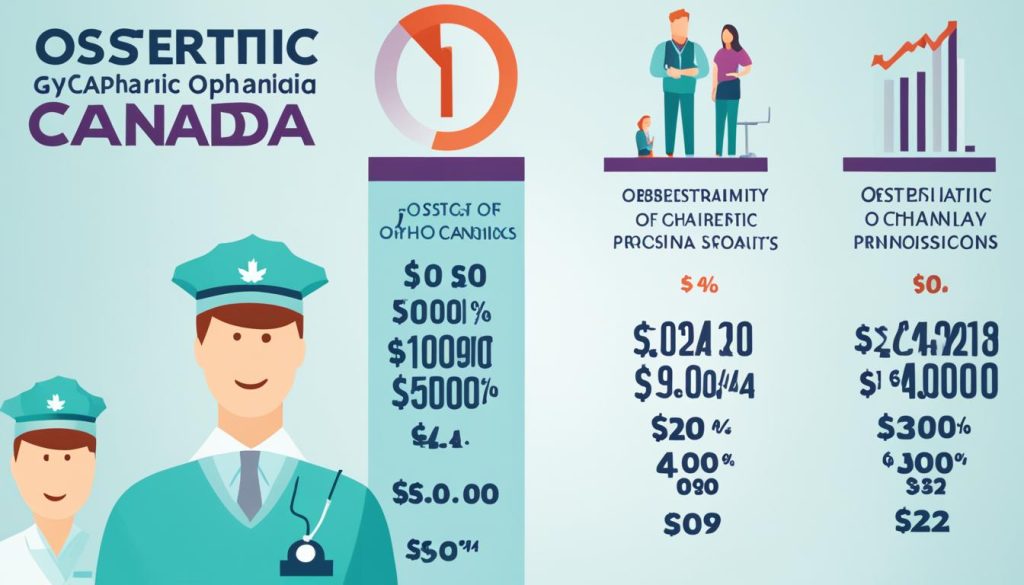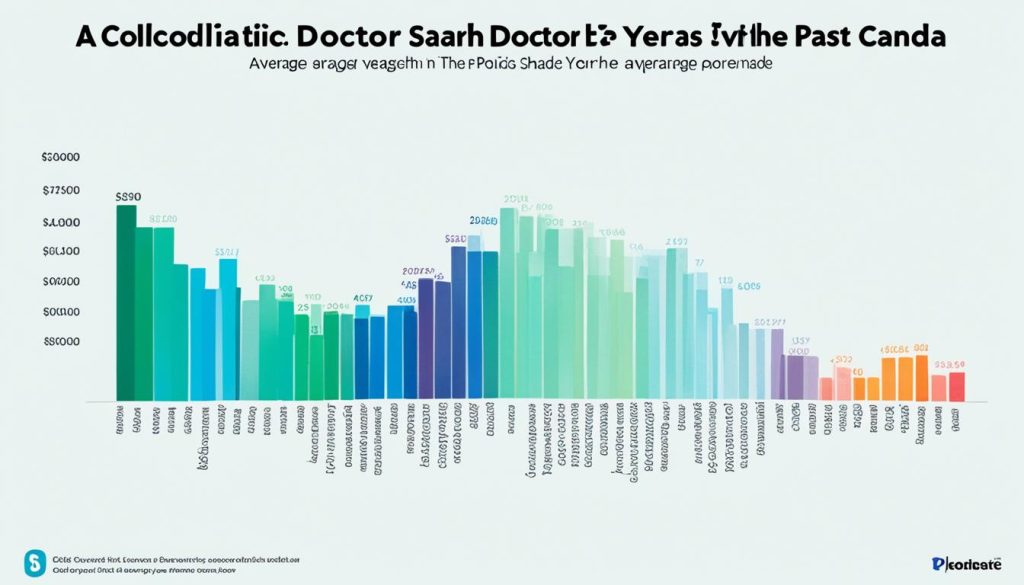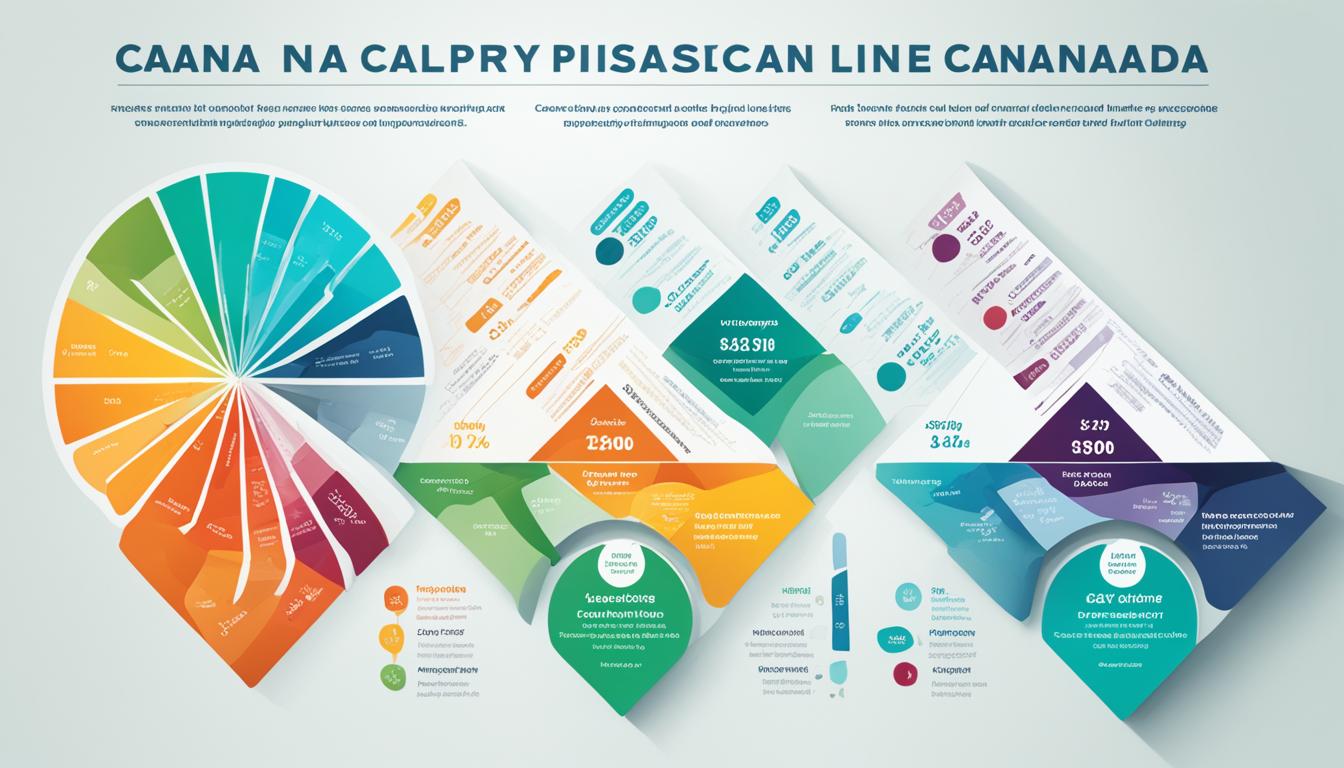According to the latest data from the Canadian Institute for Health Information (CIHI), some Canadian physicians are among the highest-paid professionals in the country. Earning an impressive $414,389 per year, these physicians are among the highest-paid professionals in the country. This staggering figure, however, represents only the upper echelon of doctor salaries, with the average physician gross annual income ranging from $83,379 to $414,389. A wide range of factors, including medical specialization, location, payment methods, and practice setting, can significantly impact a doctor’s salary in Canada.
This comprehensive article delves into the intricate world of physician earnings, exploring the nuances of how much doctors make in Canada. From the highest-paid specialties to provincial variations, we’ll uncover the true scope of physician remuneration and the forces shaping this critical aspect of the healthcare industry.
Introduction
This article provides a comprehensive overview of physician salaries in Canada, exploring the factors that influence a doctor’s earnings. The Canadian Institute for Health Information (CIHI) is the primary source of the data presented, which covers average gross clinical payments for family medicine and 17 medical and surgical specialties across 10 provinces.
Overview of Physician Income in Canada
In Canada, how much a doctor can earn can vary significantly based on a range of factors. The latest data from the CIHI reveals that the average physician gross annual income in Canada can range from $83,379 to $414,389 per year. This wide disparity is largely driven by the physician’s medical specialization, geographic location, payment methods, and practice setting.
Factors Influencing Doctor’s Salary
Several key factors can impact the salaries of physicians in Canada. These include the number of patients a doctor sees, their specific medical specialization, the location of their practice, the payment methods they utilize, whether they work in a private practice or a hospital setting, and whether they have additional roles in research or academia. Understanding these variables is crucial to gaining a comprehensive picture of which Canadian doctor has the highest salary and how doctor’s pay compares between Canada and the USA.
How are Physicians Paid in Canada?
In Canada, physicians can be compensated through various payment models, with the fee-for-service model being the most widely used, accounting for 72% of physician payments. This system reimburses healthcare providers based on the specific medical services and procedures they perform for patients. Alongside the fee-for-service approach, alternative payment plans have also been implemented to address the evolving needs of the healthcare system and provide more comprehensive care.
Fee-for-Service Model
The fee-for-service model is the dominant method of physician remuneration in Canada. Under this system, doctors receive a predetermined fee for each medical service or procedure they provide to patients, such as consultations, diagnostic tests, or surgical interventions. This payment structure incentivizes healthcare professionals to deliver a high volume of services, as their earnings are directly linked to the number of services they perform.
Alternative Payment Plans
While the fee-for-service model remains prevalent, alternative payment plans have been introduced to complement and, in some cases, replace the traditional approach. These alternative models include blended capitation, salary-based, and mixed payment arrangements. These approaches aim to promote more comprehensive and coordinated patient care, as well as to address potential concerns related to the fee-for-service model, such as the overutilization of services.
Gross Clinical Payment and Full-Time Equivalent
Physician compensation in Canada is often reported in terms of “gross clinical payment,” which represents the total amount of money a healthcare provider receives for their clinical services, including both fee-for-service and alternative payment models. Additionally, the concept of “full-time equivalent” (FTE) is used to standardize physician earnings, accounting for factors such as the number of hours worked and the scope of practice. This metric helps to provide a more accurate comparison of physician earnings across different specialties and practice settings.
The [how much does a surgeon make in canada?] is a crucial consideration for many healthcare professionals and aspiring doctors in Canada. Understanding the various payment models and the factors that influence physician compensation can help inform career decisions and financial planning for those interested in the medical field.
Average Physician Gross Annual Income
According to the Canadian Institute for Health Information (CIHI), the average physician gross annual income in Canada was $387,756 in 2019-2020. This figure highlights the substantial earning potential within the medical profession in Canada, as doctors are often considered among the highest-paid professionals in the country. The income levels for physicians can vary significantly based on several key factors, including location, specialty, and practice setting.
By Province
Physician salaries can fluctuate across different provinces in Canada, reflecting regional economic conditions, cost of living, and healthcare funding models. The CIHI data provides insights into the average gross annual income for doctors in each province:
| Province | Average Physician Gross Annual Income |
|---|---|
| British Columbia | $420,660 |
| Alberta | $418,964 |
| Quebec | $389,287 |
| Ontario | $327,477 |
| Nova Scotia | $354,401 |
By Specialty
The earning potential for physicians in Canada also varies significantly based on their medical specialty. Certain specialized fields, such as surgery and anesthesiology, tend to command higher salaries compared to general practitioners or family medicine. The CIHI data provides a breakdown of average gross annual income by specialty:
| Specialty | Average Physician Gross Annual Income |
|---|---|
| Orthopedic Surgery | $507,807 |
| Obstetrics/Gynecology | $472,548 |
| Cardiology | $493,060 |
| Family Medicine | $304,142 |
| Pediatrics | $361,623 |
These figures clearly demonstrate the wide range of earning potential for physicians in Canada, with some specialties commanding significantly higher salaries than others. Understanding these variations can help aspiring medical professionals make informed decisions about their career paths and the potential income they can expect.

Gross Annual Income by Province and Specialty
The earnings of doctors in Canada can vary significantly based on their medical specialization and the province they practice in. Let’s explore the gross annual incomes for some key specialties across different provinces.
Cardiology
Cardiologists, who specialize in diagnosing and treating heart and cardiovascular conditions, are among the highest-paid medical professionals in Canada. According to the latest data, the average gross annual income for cardiologists in Canada can range from $383,574 in Nova Scotia to $602,243 in Alberta.
Dermatology
Dermatologists, who focus on the health and treatment of the skin, hair, and nails, also command high salaries in Canada. The average gross annual income for dermatologists can vary from $391,291 in New Brunswick to $543,440 in British Columbia.
Family Medicine
While not as high as some medical specialties, family medicine physicians in Canada still earn respectable incomes. The average gross annual income for family medicine doctors ranges from $267,376 in Nova Scotia to $337,748 in Ontario.
How Much Do Doctors Make in Canada?
1. Gastroenterology
Gastroenterology, the specialty focused on the digestive system, is one of the highest-paying medical fields in Canada. According to the latest data, gastroenterologists in Canada can earn substantial salaries, with the average gross annual income reaching $493,060. The top-earning provinces for gastroenterologists include Saskatchewan ($544,297), British Columbia ($542,929), and Alberta ($537,539). Even the lowest-earning province, Nova Scotia, still reports an average gastroenterology salary of $350,724, highlighting the lucrative nature of this medical specialty in the Canadian healthcare system.
2. General Surgery
General surgeons, who perform a wide range of surgical procedures, also command impressive salaries in Canada. The average gross annual income for general surgeons across the country is $507,807. The highest-paying provinces for general surgeons include Newfoundland and Labrador ($604,053), Alberta ($595,058), and Saskatchewan ($570,139). Even the lower-earning provinces, such as New Brunswick ($461,365) and Nova Scotia ($464,793), demonstrate that general surgeons are among the [which doctor makes the most money?] in the Canadian medical landscape.
3. Internal Medicine
Internal medicine physicians, who specialize in the diagnosis and treatment of adult diseases, are another well-compensated group of doctors in Canada. The average gross annual income for internal medicine specialists is $361,623, with the highest-earning provinces being British Columbia ($420,660), Alberta ($418,964), and New Brunswick ($412,370). While internal medicine salaries may not reach the same heights as some surgical specialties, they still place these doctors among the [which doctor makes the most money?] in the Canadian healthcare system.

Neurology and Neurosurgery Salaries
In the field of healthcare in Canada, the salaries for physicians in the specialties of neurology and neurosurgery can vary significantly across different provinces. According to the latest data from the Canadian Institute for Health Information (CIHI), the average gross annual income for neurologists in Canada is $356,913, with some regions offering higher compensation than others.
1. Neurology
Neurologists in British Columbia enjoy the highest average gross annual income at $456,129, followed by Alberta at $412,966 and Newfoundland and Labrador at $379,965. Other provinces such as Manitoba ($363,673), Prince Edward Island ($359,155), and Saskatchewan ($358,399) also offer competitive salaries for neurologists. However, the income levels in Ontario ($342,627), Quebec ($334,388), New Brunswick ($311,167), and Nova Scotia ($288,633) tend to be lower in comparison.
2. Neurosurgery
When it comes to the highly specialized field of neurosurgery, the salaries in Canada can be even more substantial. The average gross annual income for neurosurgeons across the country is not readily available, as the data is often grouped under the broader category of “Neurology and Neurosurgery.” Nevertheless, the high demand for skilled neurosurgeons and the complex nature of their work typically translate into some of the highest-earning physician salaries in the Canadian healthcare system.
It’s important to note that the how much does a surgeon make in canada? can be influenced by various factors, such as the specific medical subspecialty, years of experience, geographic location, and the healthcare system’s compensation model within each province. Understanding these nuances is crucial for both physicians and patients seeking to gain a deeper insight into the remuneration of medical professionals in Canada.
Obstetrics/Gynecology and Ophthalmology Earnings
Physicians in specialized fields like obstetrics/gynecology and ophthalmology can earn some of the highest salaries in the Canadian healthcare system. According to the latest data from the Canadian Institute for Health Information (CIHI), the average gross annual income for obstetricians/gynecologists and ophthalmologists in Canada can vary significantly by province.
Obstetrics/Gynecology
Obstetricians and gynecologists, responsible for providing comprehensive care for women’s reproductive health, tend to be among the highest-earning doctors in Canada. The average gross annual income for obstetricians/gynecologists across the country is $472,548. However, this figure can fluctuate based on the province:
| Province | Average Gross Annual Income |
|---|---|
| British Columbia | $568,742 |
| Alberta | $540,451 |
| Saskatchewan | $539,522 |
| New Brunswick | $538,434 |
| Prince Edward Island | $520,185 |
| Manitoba | $509,233 |
| Quebec | $463,067 |
| Nova Scotia | $450,795 |
| Ontario | $436,002 |
| Newfoundland and Labrador | $379,067 |
Ophthalmology
Ophthalmologists, who specialize in diagnosing and treating eye conditions, also command high salaries in Canada. The average gross annual income for ophthalmologists is not currently available in the CIHI data, but this specialty is known to be among the top-earning medical fields.
The variations in physician earnings across provinces and specialties highlight the complex factors that influence how much a doctor can earn in Canada, such as demand, cost of living, and reimbursement models. Understanding these nuances is crucial for both aspiring and practicing doctors who want to maximize their earning potential.

Orthopedic Surgery and Otolaryngology Income
In the realm of medical specialties, orthopedic surgery and otolaryngology (ear, nose, and throat) stand out as two of the highest-paying fields in Canada. These specialized doctors, who command some of the most lucrative salaries, are essential in treating a wide range of musculoskeletal, hearing, and respiratory conditions.
Orthopedic Surgery
Orthopedic surgeons in Canada can expect to earn impressive annual incomes, with the average gross income reaching an astounding $507,807. The top-earning provinces for orthopedic surgeons are:
| Province | Average Gross Income |
|---|---|
| Newfoundland and Labrador | $604,053 |
| Alberta | $595,058 |
| Saskatchewan | $570,139 |
| Manitoba | $567,600 |
| Prince Edward Island | $526,246 |
| British Columbia | $518,090 |
| Quebec | $514,266 |
| Ontario | $473,882 |
| Nova Scotia | $464,793 |
| New Brunswick | $461,365 |
Otolaryngology
Otolaryngologists, or ear, nose, and throat (ENT) specialists, also command impressive salaries in Canada. The average gross income for these specialists is not yet available in the latest data from the Canadian Institute for Health Information (CIHI).
The high-earning potential of orthopedic surgeons and otolaryngologists highlights the significant financial rewards associated with these specialized medical professions in Canada, making them among the most lucrative jobs in the country.
Pediatrics, Physical Medicine, and Psychiatry Salaries
When examining the [which canadian doctor has highest salary?] in Canada, the salaries of pediatricians, physical medicine specialists, and psychiatrists are equally noteworthy. These medical professionals play vital roles in the healthcare system, and their compensation reflects the importance of their expertise and the demand for their services.
Pediatrics
Pediatricians in Canada earn competitive salaries, with the average gross annual income ranging from $327,477 in Ontario to $420,660 in British Columbia. The high remuneration for pediatricians is a testament to the critical nature of their work, caring for the health and well-being of children across the country. As [which canadian doctor has highest salary?], pediatricians in Canada are among the top earners in the medical field.
Physical Medicine
Physical medicine and rehabilitation specialists in Canada also command impressive salaries. These doctors, who specialize in treating injuries, disabilities, and chronic conditions, are in high demand and recognized for their expertise. The [which canadian doctor has highest salary?] in this field can vary significantly by province, with some regions offering higher compensation than others.
Psychiatry
Psychiatrists, who provide essential mental health services, are another group of medical professionals with [which canadian doctor has highest salary?] in Canada. The average gross annual income for psychiatrists ranges from $334,388 in Quebec to $456,129 in British Columbia, reflecting the vital role they play in supporting the overall well-being of Canadians.

Surgical Specialties: Income for Plastic, Thoracic/Cardiovascular, and Urologic Surgeons
In the realm of doctor salaries in Canada, the surgical specialties of plastic, thoracic/cardiovascular, and urologic surgery stand out as some of the highest-earning fields. According to the latest data, these doctors can command impressive annual incomes that often surpass the earnings of their counterparts in other medical disciplines.
Plastic surgeons in Canada are among the top earners, with average gross annual incomes ranging from $546,095 in British Columbia to $467,419 in Ontario. These skilled professionals often specialize in both aesthetic and reconstructive procedures, contributing to their high earning potential. However, it’s worth noting that doctor salaries in Canada can vary significantly between provinces and territories, with factors such as cost of living and healthcare funding models playing a crucial role.
Thoracic and cardiovascular surgeons, who focus on the surgical treatment of the heart, lungs, and chest, also command impressive salaries in Canada. The average gross annual income for this specialty can reach as high as $677,400 in Alberta, while in Quebec it stands at around $600,000. These highly specialized surgeons are in high demand, as they perform complex, life-saving procedures that require advanced training and expertise.
Urologic surgeons, who specialize in the surgical treatment of the urinary tract and male reproductive system, are another group of high-earning physicians in Canada. Their average gross annual income can range from $532,265 in British Columbia to $465,506 in Ontario. The demand for these specialized services, combined with the technical skill required, contributes to the elevated compensation levels for urologic surgeons across the country.
It’s important to note that while doctors in Canada may earn more than their counterparts in the USA in certain specialties, the overall picture of physician compensation can vary depending on various factors, such as the specific healthcare system, cost of living, and the relative supply and demand for different medical specialties.
Factors Impacting Physician Salaries
Several key factors can impact the salaries of physicians in Canada. The number of patients a doctor sees, their medical specialization, and the location of their practice all play a significant role in determining their earning potential. Additionally, the payment model, whether they work in private practice or a hospital setting, and their involvement in research or academic roles can also influence a doctor’s annual income.
1. Number of Patients
Physicians who are able to see a higher volume of patients tend to earn more than those with smaller patient loads. Doctors who work in high-demand specialties or practice in areas with larger populations often have the opportunity to treat more individuals, leading to increased earnings.
2. Specialization
The medical specialty a doctor chooses can have a significant impact on their salary. Certain specialties, such as surgery, cardiology, and radiology, are generally more lucrative than primary care fields like family medicine. Doctors who have invested in additional training and expertise within their specialty can command higher salaries.
3. Location
The province or territory in which a physician practices can also influence their earning potential. Doctors in larger urban centers or regions with higher costs of living may earn more than those in smaller, rural communities. Additionally, the demand for healthcare services in a particular area can drive up physician salaries.
4. Payment Methods
The way a doctor is paid can also affect their income. Physicians who work under a fee-for-service model, where they are compensated for each individual service or procedure performed, tend to earn more than those on alternative payment plans, such as salaried positions or capitation-based models.
Private Practice vs. Hospital Employment
Doctors who operate their own private practices often have higher earning potential than those employed by hospitals or other healthcare organizations. Private practice physicians can set their own fees and have more control over the number of patients they see, whereas hospital-employed doctors may have less flexibility and face salary caps.
Research and Academic Roles
Physicians who take on additional responsibilities in research or academic positions, such as teaching at a university or conducting clinical trials, can earn supplementary income beyond their clinical earnings. These roles may provide opportunities for grants, funding, and other forms of compensation.
FAQ
1. What is the average physician gross annual income in Canada?
According to the Canadian Institute for Health Information (CIHI), the average physician gross annual income in Canada was 7,756 in 2019-2020.
2. Which medical specialties have the highest salaries in Canada?
The highest-paying medical specialties in Canada include Gastroenterology, Neurosurgery, Obstetrics/Gynecology, and Orthopedic Surgery, with average gross annual incomes ranging from 6,913 to 7,807.
3. Do doctors get paid more in Canada or the USA?
Physician salaries can vary significantly between Canada and the USA, with some specialties earning higher incomes in the USA, while others may earn more in Canada. Factors such as the healthcare system, cost of living, and supply and demand for certain specialties can impact doctor’s earnings in each country.
4. What are the main factors that influence a doctor’s salary in Canada?
Key factors that can impact a physician’s salary in Canada include medical specialization, location, payment methods (fee-for-service vs. alternative plans), practice setting (private practice vs. hospital employment), and involvement in research or academic roles.
5. Which is the highest-paying job in Canada?
While physicians are among the highest-earning professionals in Canada, the specific job with the highest salary can vary depending on factors such as industry, location, and level of experience. Some of the highest-paying jobs in Canada can include roles in finance, technology, medicine, and executive leadership.




